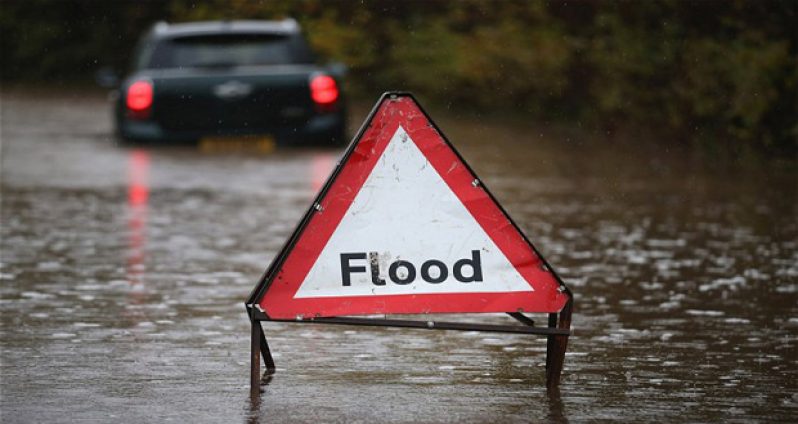IN light of the increased rainfall and the flooding in Georgetown and outlying areas, the Ministry of Public Health is advising the general public to pay special attention to their health, personal hygiene, water safety and vector control. The Ministry advises:
* If you are living in flooded areas, stay out of the water as much as possible, as it can greatly reduce your chances of contracting ailments such as skin infections, leptospirosis, diarrhoea, and other water-borne diseases. Direct contact with flood waters can expose you to several germs that can lead to any of these diseases. Keep children out of the water, as they are most at risk of contracting diseases. Avoid swimming in flooded canals and trenches, as during floods, they can become contaminated and can make you sick.
* If you must go into the water, use protective gear such as long boots, gloves and eye protection. Prepare a foot bath of ½ cup of bleach to one bucket of water, and wash your feet before entering the house. Apply ‘Vaseline’ or oil to your skin, as it forms a barrier, and provides some form of protection from the dirty water.
* During rainfall, you may notice an increase in mosquitoes. Protect yourself and family against mosquitoes by sleeping under mosquito nets, and using mosquito repellents and coils. Ensure all water storage around the home in containers are covered to reduce the breeding of mosquitoes. Remember, the mosquito that spreads Dengue and the Chikungunya virus breeds in fresh, still water (especially rain water) around your home.
* Use safe water for drinking, cooking, brushing your teeth, making ice and drinks. Safe water is water that is either treated with bleach (add ½ teaspoon to a 5-gallon bucket of water; cover and let the water stand for 30 minutes before using), boiled for at least 5 minutes, cooled and stored in covered containers, or bottled water.
* Keep food supplies from contact with flood water. Flood water can contaminate food supplies such as dry groceries, vegetables, fruits, cooked foods and beverages. Discard all foods that has been in contact with flood waters safely by placing in a plastic bag and depositing in covered bins.
o Wash all fruits and vegetables with treated, safe water and peel before eating.
o Keep all food items and drinking water in sealed containers.
* Cook food thoroughly, and consume within two hours of preparation. Store all remaining food safely in a refrigerator, and reheat thoroughly before consuming.
* Wash hands thoroughly with soap and safe water, or use hand sanitizers, especially before eating meals, after going to the toilet or latrine, and cleaning children.
* Use the toilet or latrine and dispose of baby’s diapers in your covered bins. Do not mess or let faeces get into the flood waters, trenches or drains.
* Secure of all household waste and other garbage in plastic bags, and store in bins until these are properly removed to approved landfill sites. Keep garbage bins covered to avoid pests such as mosquitoes, flies, rats and roaches from entering. Do not dump garbage in drains, trenches, canals or illegal dump sites around your community.
* Watch out for animals coming into your homes. Rats, roaches, snakes, centipedes and other pests that have been flooded out of their homes may seek shelter in yours. Keep doors and windows closed or screened to prevent them entering your homes.
* Turn off the main electrical switch; unplug all appliances and move them to safe areas of your homes if your home is under water. If you suspect electrical wiring has been damaged in your home, turn off the main and have it checked by a qualified person before turning back on the power.
* Secure all important equipment, supplies, medicines, clothing and other items in safe places in your homes. Place important documents and valuables in plastic bags and store them in a safe place.
* If you or any family member experiences any fever, coughing, vomiting, diarrhea, skin rash, cuts, sticks, bruises or other conditions, please seek medical attention immediately. The Georgetown Public Hospital and other hospital outpatient departments in the affected regions are all fully operational and equipped to provide adequate care.
For more information call the Ministry of Public Health on: Telephone 226-1560, 226-1224, 225-1263;
Or check our website: health.gov.gy



.jpg)









